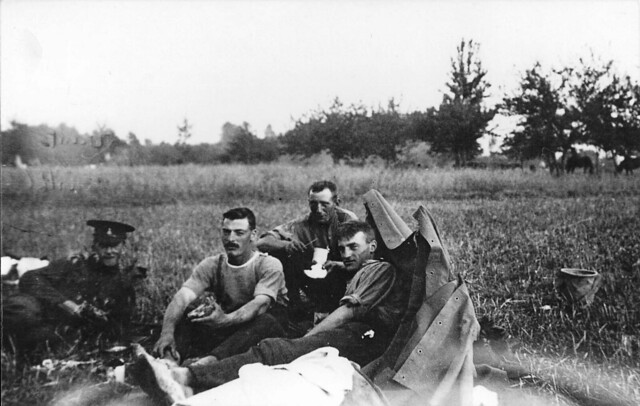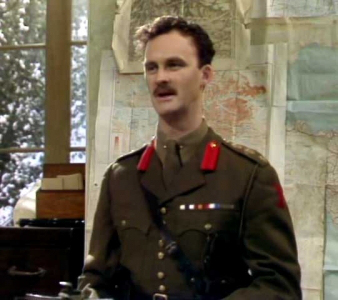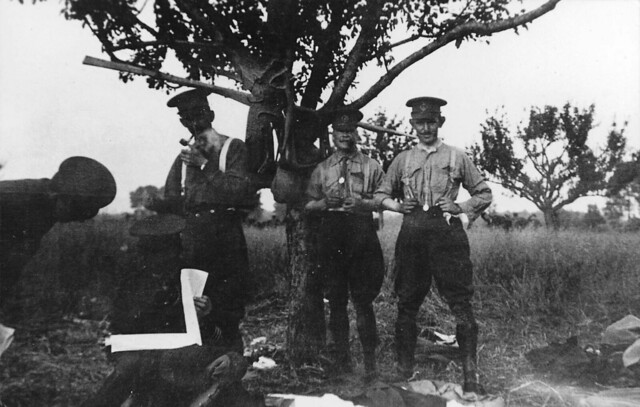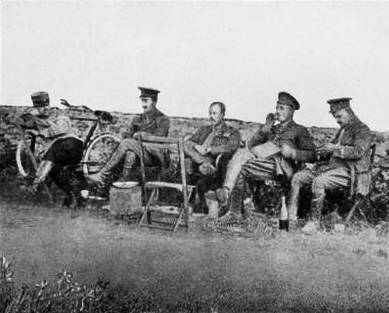French picture postcard of [place name deleted] Ancienne Abbaye de la Cour-à[aother name deleted]
Addressed to Mrs Webster, 29 Strethleven Rd, Acre Lane, Brixton, London, England. Date stamped APO 1 Sp 14 – passed by Censor No 137, and also stamped London Paid 14 Sp 14
Dear Aunt
Just a few hurried lines to thank you for your welcome letter which I was pleased to receive. I am getting on alright and still in the pink can’t get any cold tea now but when I come back I shall have plenty. The weather here is very hot have not had much rain. Now I must conclude hoping to hear from you soon. I hope you are all in the pink.
Frank
1st September 1914
I think this is the only censored piece of post in this collection. As I don’t have the actual postcard I can’t be sure but I imagine this to be a picture of the Abbaye Notre Dame de Morienval, through which the Dorsets had marched the previous day. I also think that this postcard was probably written the previous day too as today is a very busy one for Frank. Interestingly the Abbey currently the site of a rose exhibition dedicated to David Austin. This is a rare surviving postcard to his Aunt Carrie.
The language is full of cocksure optimism, typical of a lad in his early twenties. Frank complains that he can’t get any cold tea. He means beer, but I can’t find any contemporary accounts of the phrase in a quick search. I’ll come back to this as he uses it an awful lot. I imagine many of the troops were experiencing Ice Cold in Alex levels of thirst by this time.
The retreat was going to continue but the orders were cancelled and the 15th Brigade was rushed to Duvy, a mile or so to the west of Crépy-en-Valois. The 4th Division was being attacked to the north-west. The Dorsets and the Norfolks were then moved again up towards Rocquement. This order was cancelled before they reached their destination and they returned to Duvy.
German cavalry was pushing patrols into the vicinity. British artillery on the hills around Crépy-en-Valois started to duel with the German artillery ranged against them. The Dorset war diary reports shellfire at Duvy but it is friendly fire. The Brigade then dropped back to Ormoy Villers, where they halted until 2pm.
Gleichen eats a mixture of sardines, tomatoes and apples, washed down with chocolate, biscuits and warm water. He does love describing his food. It adds a lot of life to these rather dry military descriptions. The Brigade then fell back again, south to Nanteuil-le-<Haudouin, where the rest of the 5th Division had gathered. A, B and C Companies were put into outposts along the north-western approaches to the town. D and Battalion HQ remained 1/2 mile north of the town. It was a day of two forces testing each other out rather than actual engagement. But they’d heard the guns to their north west throughout the day, and they knew that someone was catching it. The Germans had caught them up.
The Dorsets had marched about 12 miles, including the operations.



